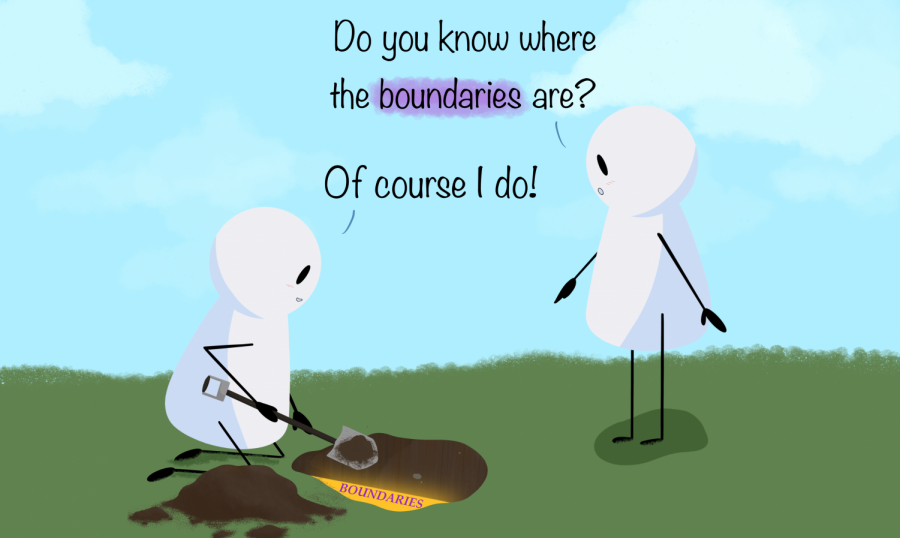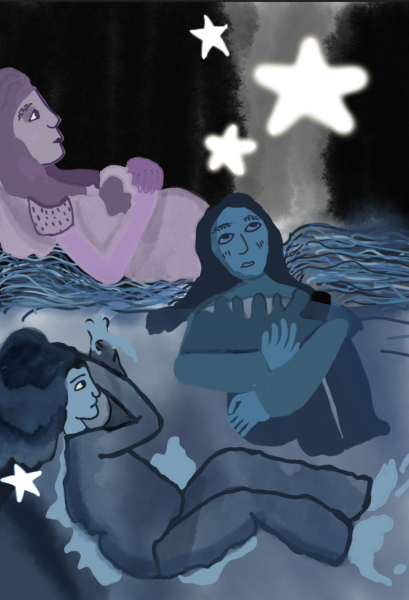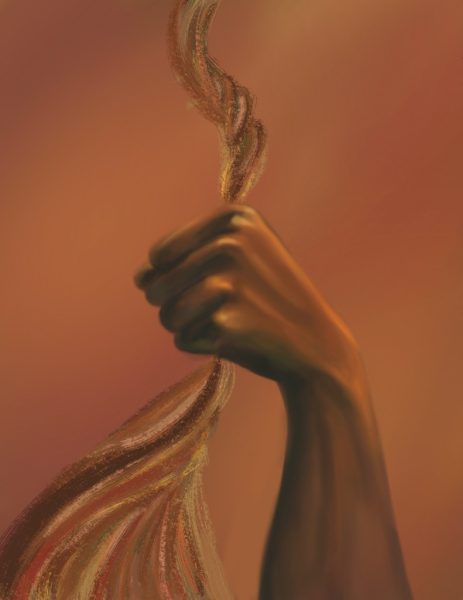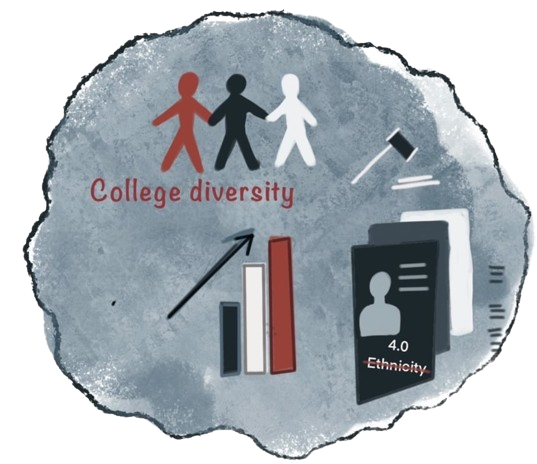Someone Draw a Line
The Woodbridge High community addresses sexual harassment
While not physically visible, there’s a fine line to defining one’s personal boundaries.
As teenagers living in a progressive generation of outspoken activists, it is ironic that we lack basic knowledge of issues frequently affecting our peers. In an age of revolutionary political reform and increased media recognition, there is a generational trend of normalizing injustices.
It is easy to hear “sexual harassment” and immediately be repelled. Sexual harassment is a complex topic that tends to generate countless misconceptions: only females experience unwelcome advances, harassment only includes physical contact and doesn’t occur at school. However, this is inaccurate and these misconceptions have gone on too long at Woodbridge High.
Despite its many misconceptions, the definition of sexual harassment is crystal clear: it is the infliction of displeasing and uncomfortable gestures in forms of comments, texts and implications-alongside unwelcome physical contact, according to Rape, Abuse and Incest National Network (RAINN).
“If someone says something, even if it’s meant to be humorous but it’s a little off-color or inappropriate, if another student is offended by it when they hear it, that’s sexual harassment,” Assistant Principal Alicia Foulk said.
Before graduating high school, 48% of students, including 56% of girls and 48% of boys, will experience sexual harassment and 50% of those students will not seek help from friends, teachers or family members according to the American Association of University Women (AAUW).
Nowadays, teenagers are overstepping boundaries with commonplace jokes solely revolving around another person’s features, sex or ethnicity. This widespread societal acceptance of inappropriate are particularly alarming as it reinforces the notion that students should accept unwanted comments and advances.
In an AAUW survey, out of those who admitted to sexually harassing others in high school, 39% said they were trying to be funny and 44% thought their actions were not a big deal.
In the end, intention does not matter; if the person on the receiving end feels uncomfortable or that an act of injustice occurred, that is a sign of a crossed boundary. If someone masks offensive and suggestive commentary with distasteful humor, it does not make them a comedian, it makes them insensitive.
“It’s not the responsibility of the person who received the joke to be able to brush it off. It’s the responsibility of the person that said it, to understand that what they said is not okay,” Foulk said.
As the youth of this generation, it is our job to halt the progression of this alarming culture. If we do not correct the misguidance of prior generations, future generations will grow up disgracefully believing sexual harassment is a humorous and trivial concept.
“That’s when progress gets made, it’s when people are talking more and more,” science teacher Will Buckley said. “The moment we see something happen and we don’t do anything about it, that’s when we start to lose this fight.”
If you feel uncomfortable, do not feel afraid to break the silence and reach out to a parent or Woodbridge High member. Rather than embrace feelings of discomfort, start a conversation and demand that boundaries be respected. Building a chain of education regarding sexual harassment among students and staff will correct the misconceptions and establish definitive boundaries.
Within the next month, Irvine Unified School District’s “Speak Up We Care” program will be partnering with The Sandy Hook Promise, releasing “Say Something,” an anonymous reporting system in the form of an app, website and phone number, creating a safe space for students.

Hey Warriors! This is my third year on the Golden Arrow, and I am so excited to be writing for this year's magazine and website. I consider writing to...

Buenos dias, Warriors! This year for me comes with many sweet sorrows as I treasure my fourth and last year with the Golden Arrow. I hope to instill this...











